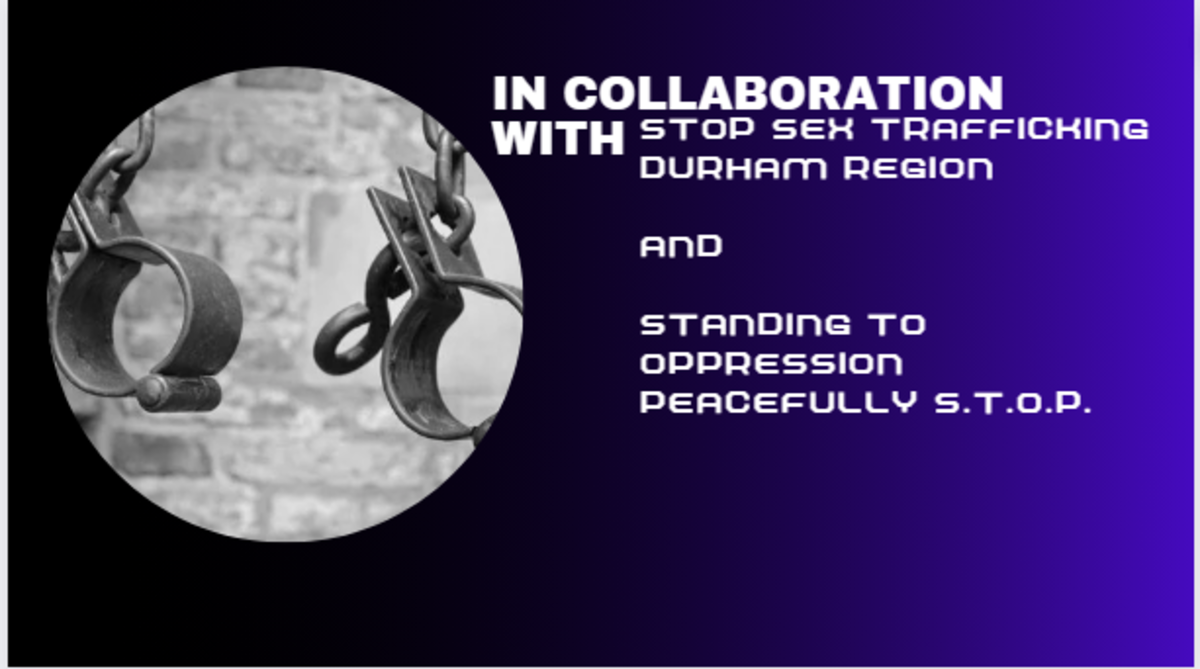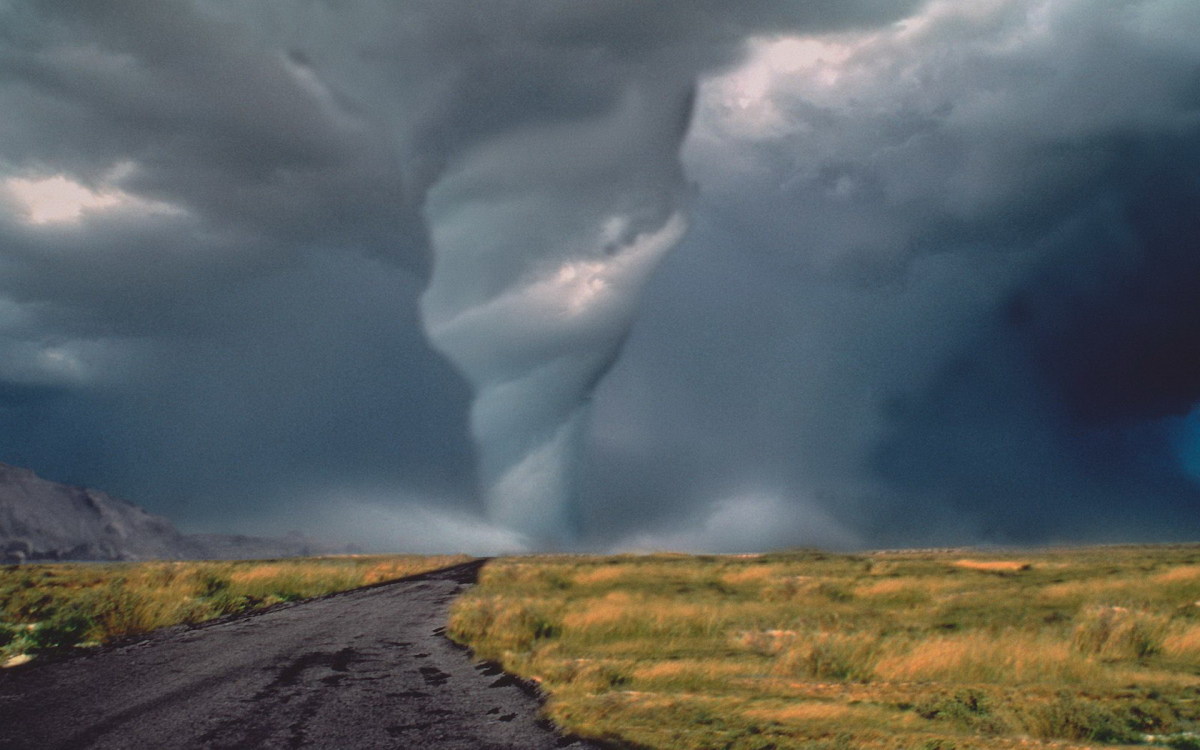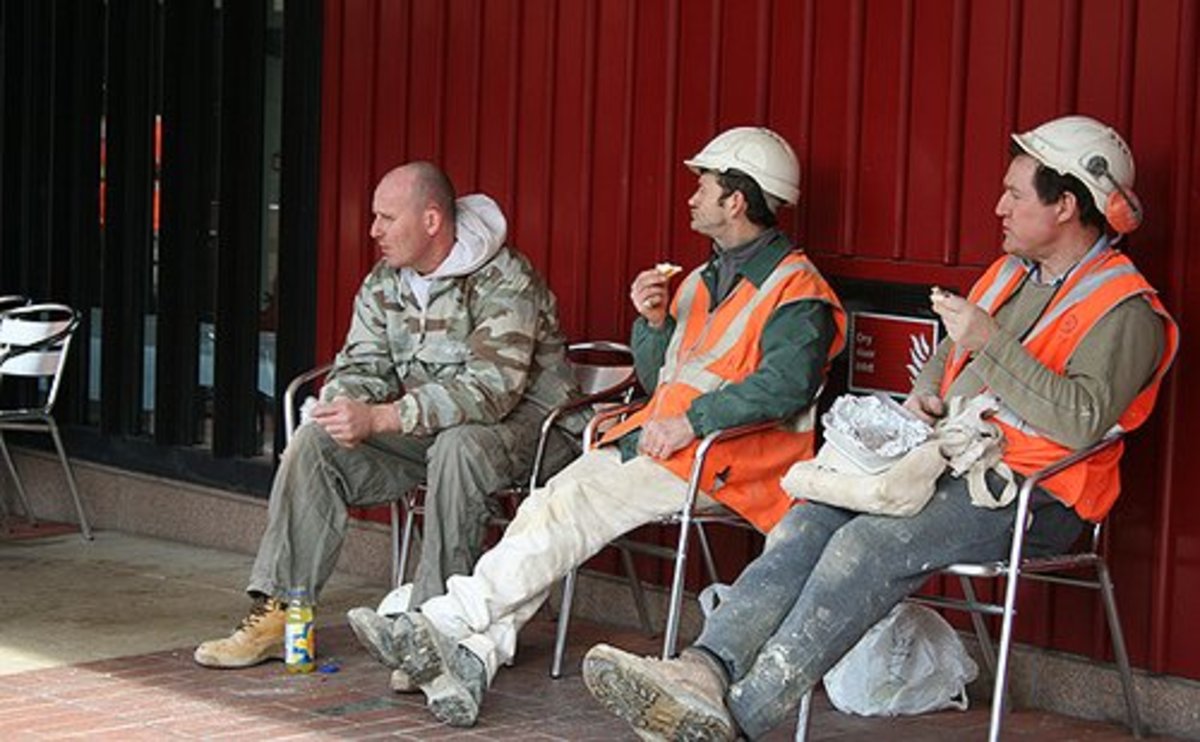Child Safety - Protect Your Child from Predators and Abuse
by Kathy Batesel
NOTE: Google advertisements have been disabled on this article because it is considered too controversial. However, our children's well-being is far too important to base on advertising revenue. If you agree and find this article helpful, please consider sharing it with families who may benefit by posting it a link from your social network sites.
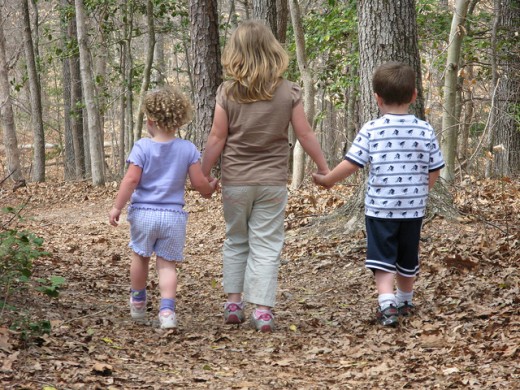
When your child was born, did you childproof your home? Most parents today take extra care to make sure their young children can't get hurt by electrical outlets, hanging cords, and poisons in the cupboard. Most parents use carseats for their infants to protect their children or avoid paying penalties. These common sense steps protect your child from ordinary dangers they'll face as they grow up and explore their world.
Far fewer address the more serious threat - child sexual predators. It might seem like it's a remote risk that will happen to other people's children. After all, you know where your child is, who they're with, and what they're doing. Yet attentive parents and their children fall victim to abusers with much greater frequency than children ever succumbed to poisoning or electrical shocks.
About 10% of all abused children are infants. Nearly 40% of all exploited children are under the age of 7. People who abuse children are most often known to the family but not related (60%) or are related to the child (about 30%). Source.
Both the legal climate and social responses to sexual abuse tend to further traumatize the child who has been exploited.
Statistics are deceiving and unreliable for determining exactly how widespread the problem it is. People don't report things they don't recognize, and even when they do recognize abuse, other factors can prevent reporting. They may feel ashamed because they love the abuser. Their household income and structure could drop if the offender is arrested. They often worry it will cause more harm to their child. The child may be terrified that "telling" will make some get hurt or get them into trouble.
The website Adults Surviving Child Abuse reports on studies that have asked adults to report on what they experienced during their own childhoods seem to support that one in every three girls has had an experience they felt sexually abused them, and one in ten boys. Nearly all survivors of child abuse report higher frequency of depression, suicide attempts, relationship problems, and other mental health issues than people who were not abused.
To protect your child, you can learn to spot signs of sexual predators and teach your son or daughter to protect themselves, too. Keep reading to discover how to be the best parent you can be to your child.
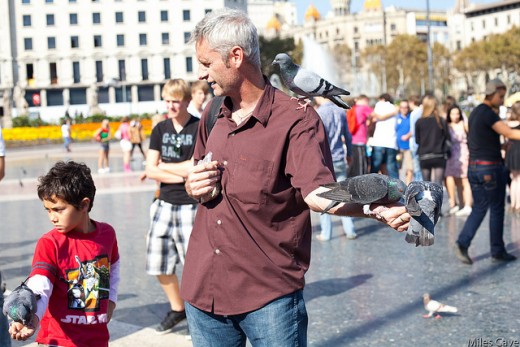
Red Flags About Fathers/Stepfathers and Daughters
It's horrifying to talk about, but even more horrifying not to. If you see several of these signs in your household, I encourage you to talk to your child about how to protect herself. Set firm standards about these areas. Develop an exit strategy and determine what will trigger you to use it.
- He encourages/allows casual nudity
- He "accidentally" exposes himself
- He doesn't enforce mom's boundaries when she's absent
- He encourages child to keep quiet about these "special permissions"
- His physical "play" may involve his hands coming into contact with her butt, groin, or breast area. Often geared toward tickling, chasing, or swimming.
- Makes sexual innuendos or tells off-color jokes in front of child
- Affection toward mom in front of child includes sexual innuendo, not simply affection
- May take child shopping for undergarments often or unnecessarily
- Confides inappropriately in the child
- Develops a photo hobby that involves placing the child in suggestive poses or capturing suggestive, vulnerable poses that seem "different" from other parents' photos of their children
- Develops other activities with the child that are uncommon for children her age, such as bathing a girl who is old enough to bathe herself or reading bedtime stories to her with the bedroom door closed.
- Having disciplinary talks with the child behind closed doors and without mother present
If you have a feeling something isn't quite right, and you're observing even one of these things, please don't hesitate to protect your child.
Male predators may he heterosexual and still target boys if their preferred target is unavailable.
About Predators
Predators lurk where they can most easily find their quarry. Children congregate at schools, in playgrounds, at public parks, and at community organizations for children, such as Sunday school, recreation centers, sports teams, game arcades, and youth events. This means predators may be volunteers or employees at these organizations, or might live in close proximity to them. They may opt to spend their time around families with children, offering to baby-sit or playing video games with your child. By being around children, predators can identify which child(ren) they can molest without getting caught.
In these scenarios, you should be aware of any adults who seem to go “above and beyond” what most adults would do. For instance, you may have several friends who might agree to watch your child on occasion, but if one offers to watch your child regularly, without pay, when it would clearly require major adjustments to their own schedule, alarm bells should sound in your mind. Once they've identified their potential target, an abuser will seek information about their victim - information that lets them develop an effective plan.
Predators are very likeable, too. The vast majority of sexual predators avoid force, so they rely upon grooming children to be pliable to their desires. That means they must first obtain a child’s affection and trust. These offenders seem to instinctively understand children and empathize with them to a high degree.
While continuing to collect information, they will also find a way to satisfy an important need for their victim. They may use gifts, fun activities, and kind words to achieve the child’s cooperation. Children who are frequently alone, lonely, bored, or angry make the best targets. Parents who are single, drink excessively or abuse drugs, or experience high stress due to family or financial difficulties make a targeted child even more appealing and easier to lure. The offender sees an opportunity to make himself useful to both the child and parent. Both the parent and child are likely to want more access to the "solution" presented by the predator.
Learn more about how predators make children more vulnerable by visiting the National Association of Adult Survivors of Child Abuse.
We feel wonderful when people treat our children well, and it's especially hard to think badly of someone your child adores. If alarm bells start going off in your mind, remember that it's better to err on the side of caution than to regret it later! Start taking precautions right away. (You'll find tips later in this article.)
They may also find ways to fill needs of the child's caregivers to ensure even greater access to their victim. Offenders’ attitudes toward women are often highly supportive of women, too. Offenders seem to whole-heartedly agree that women are at a disadvantage in the workplace or that women are mistreated. This enables them to gain the mother’s cooperation in making her children accessible to him. (Non-offenders are more likely to take a balanced stance or be biased for their own sex on such issues.) Some genuinely great guys are sympathetic to women's issues, so this can be misleading if it's the only sign that a man isn't "just like other guys." However, if he seems unsympathetic toward men, or when this behavior is seen in combination with other signals, it can prove significant.
Once the predator has completed those four steps to his or her own satisfaction, abuse will take place.
Because friendly people with no ill-intent learn about us through their interactions, and may somehow meet needs that our children or families have, learn to recognize traits that are not dependent on their interactions with an intended target. The offender’s sexual behavior in the absence of children is worth mentioning. They are more likely to make off-color jokes or innuendos at inappropriate times, engage in a higher-than-average amount of pornography and masturbation, or be hyper-sexual in obvious ways.
Some predators have difficulty recognizing appropriate social boundaries. Someone who insists on hugging your child, comments on your child’s sexual development, or tells “dirty” jokes in the presence of children, is clearly behaving inappropriately. Tickling, verbal teasing, swatting, offering to swim with your children, developing an online or e-mail relationship with your child, or sharing secrets are strong indicators that your child is being groomed for sexual activity.
Once they’re actively participating with a family that has children, they may “accidentally” walk in to rooms where the children may be undressed, such as bedrooms or bathrooms, or expose themselves in various ways, such as wearing loose shorts without underwear and sitting with their knees apart, enabling them to proclaim they made an innocent mistake if you happen to find out about the event at all.
Sex Slavery is Alive and Well in the U.S.
- Kaela Thompson and Slavery in the United States
It could happen in your neighborhood, or in your child's school. It could happen at the Mall or downtown. Child trafficking is real and must be faced and ended.
Real Life Examples of Predators
To avoid legal issues of my own, I will identify people by (fake) initials when describing these actual examples of grooming. However, each of these are actual examples that happened to me or to people I know.
S.R. was a substitute teacher who was assigned for three weeks to my classroom full of pre-teens. The students thought he was ultra-cool with his longer hair and trendy shoes. Plus, he told us to call him by his first name! Each day, he brought a paperback book with him called "The Tropic of Cancer" by Henry Miller. An avid reader, I picked up the book from his desk while awaiting his return to the classroom and found myself reading a graphic sexual scene. When S. returned, he noticed and gently took the book from me without mentioning or asking about what I had seen, but a few days later he invited me and my best friend to visit his nearby apartment. How would your child respond?
I felt flattered that he thought me worthy of inviting me, and a bit uncomfortable although I didn't pinpoint the reason until much later.
Just a few years later, a game arcade opened in my neighborhood. The manager, J.P., connected with the teens who spent their quarters playing pinball and Donkey Kong. He cheered them on their game scores and when they complained about their parents, homework, or little brothers. Several of the teen boys went to his house on weekends, boasting later that J.P. got them drunk or high. I can't say for certain that sexual abuse occurred, but knowing what I do as an adult, I'm betting it did. Arcades are almost a thing of the past, but video games are still a way for adults to appeal to children of all ages. Can you think of other ways abusers could get time alone with your child?
My aunt had terrible instincts when it came to men. B.L., one of the men she dated briefly, wore shorts without underwear and when I pointed out that the head of his penis was showing through the leg hole, he corrected them and claimed it was an accident. It happened several more times in the weeks that followed, though I stopped calling attention to it after the first time. Incidentally, he also posed nude for a women's sex magazine that was popular at the time. I don't believe his intentions were innocent, though my aunt didn't date him long enough for his behaviors to continue. Her next boyfriend, S.R., taught my cousin and me how to gamble with cards. After a while, he gave us the keys to his car and sneaked bottles of beer to us so we could get away by ourselves and listen to music while the adults "enjoyed themselves." She stopped dating him when she walked in and found him attempting to fondle me as he told me goodnight. Other adults had no idea that we had been exposed to these things except for one of those "accidental" exposures.
D.G. was a successful business-man and non-custodial parent who took his daughters for walks in the forest and played at the park during his weekend visitations. He tended to make off-color jokes in their presence, and swatted them on their butts frequently when playing tag. Around the house, he wore a bathrobe with nothing underneath, and encouraged his young girls to sit on his lap while dressed that way. Their mother did not discourage the practice and years later, both admitted he had violated them. When they did, she claimed she had no idea that he was behaving inappropriately. What would you do if you weren't sure about a friend or loved one's behavior?
J.H. was drunk when he told me about molesting his stepchild. "She asked me for a massage," he said, "and I didn't even realize that my curiosity had gotten the better of me. She told her mom, and she divorced me." Of course he realized what he was doing! Predators always minimize, rationalize, or deny their deeds if they expect a negative response. Your response could be the first step in their attempt to groom you to allow continued access to your child.
J.H. had no further contact with that girl. P.G. faced a similar outcome with a toddler who was his own child. When he dated my friend, he explained that he had been falsely accused of molesting her. Likewise, another man I worked with, S.B., said the same thing to explain his weekday arrest. While there are cases of false allegations, statements like these should put a parent on guard. If no visitation schedule was reinstated, it's likely that the allegation was true, but not enough evidence was found to ensure a conviction. There are far more cases of abuse that don't get reported than cases that do, and of those that are reported, very few ever go to court because it's notoriously difficult to get hard evidence!
My own father was a sexual predator who died in prison. Unlike many offenders, he turned himself in because he felt guilty about his actions yet still wanted to pursue children. (Some offenders are primarily attracted to children, much in the same way we might find people with a certain eye color more attractive. Other offenders resort to children when they are unable to find suitable adult partners or if they're feeling especially stressed. My father was the first kind of predator, always on the prowl for children.) One of his methods was photography. He had his camera ready at family gatherings, when we went to parks, swimming pools, beaches, and sporting events, always ready to capture shots he found sexually appealing among the many mundane photos he took. He also offered to take photos of pre-teen and teenage girls. I'm not sure what he told them or their parents. After he died, his belongings were sent to me. I discovered he'd kept a photo album entirely of young girls in semi-seductive poses. As a teen, I'd dreamed of modeling and several photographers had offered me portfolio sheets in exchange for posing. One tried to tell me that too-large of breasts were unattractive for models and asked me to remove my shirt so he could check.
Don't Turn a Blind Eye to The MANY Signs of Abuse
- Tell tale signs of sexual abuse .
Even one of these signs is a reason to be concerned that your child is being sexually abused.
Real Stories of the Children
If you haven't guessed by now, I was a victim of sexual abuse numerous times, and by numerous people. For me, the effects invaded much of my life. From a young age, I learned to hide "the truth" about myself and felt shame that plagued my self-confidence for many years. I developed numerous coping mechanisms that alienated me from my peers and later, my coworkers. I simply didn't know how to fit in. I spent years in therapy and had a succession of failed relationships. I attempted suicide several times. After I acknowledged what I had experienced, people treated me differently, avoiding me or acting as if I was somehow to blame or defective.
L.T. and R.T., two boys who were molested in their youth, adopted their own ways of coping. One dove into his work and avoided relationships, while the other became hypersexualized. He entered the sex trade business, mutilated himself for sexual reasons, and has difficulty interacting with what he calls "vanilla" people - those who prefer monogamous, committed partnerships.
L.G. struggled with drug abuse, depression, and low self-esteem. She entered the sex-trade briefly, working as an exotic dancer, but quit because flashbacks plagued her. She had one brief marriage and has otherwise stayed single into her 50s.
The children who endure sexual abuse are often shamed when they do tell what has happened. J.B., who was molested when he was in kindergarten, didn't tell. His mother walked in and discovered her brother invading her son's body. Her response was to scold her son for letting himself be alone with his uncle. One of my boyfriends told me I was "damaged" and another asked me "why I had let that happen to me" - even though I was far too young to have any power in the situation!
C.R. was only five when he told his mother about her boyfriend hurting him. She became hysterical and distraught. Her reaction was so severe that he became scared and claimed another man had hurt him. That person went to prison for three years. After years of therapy C.R. admitted that he'd collared the wrong person, and why.
A.T.'s parents had a powerful reaction when she walked in the door in tears because a landscaper at her apartment complex had assaulted her. The offender was arrested the same day, and sent to prison for twelve years. In the aftermath, her parents and grandparents coddled her because she "had been through so much." She developed manipulative tendencies and by her teen years, was incorrigible. She became addicted to methamphetamines by the time she had her first child, and was still using them when she had her fourth at the age of 21.
Post-traumatic Stress Disorder (PTSD), anxiety disorders, eating disorders, and other destructive behaviors are other effects that can result after even a single incident of sexual abuse.
Food for Thought....
- Checklist Mommy Says...
Stop teaching your child "stranger danger" and teach this instead.
What to Do About Confirmed Sexual Predators
If you see signals of abuse, if your child tells you he or she has been molested or if someone is making them uncomfortable:
- Take a deep breath before responding. Your child will learn from your behavior and if you react like it's a huge trauma, so will he or she. At the same time, it's equally important to address it firmly and decisively so your child knows you will be his/her protector.
- If necessary, take a time out to regain your composure. You may feel an urge to hurt the perpetrator, but you'll quickly realize that doing so will hurt you and your child more than going through legal channels. You can't help your child much from a jail cell, after all! Tell your child, "I need a little while to think about what you've just told me. Can we talk more about this later today?" (And then make it a point to follow up!)
- When you do talk to your child, ask them to tell you what happened. Do not offer your interpretations or best guesses, but instead gently prompt them to tell more. If you use open-ended questions that can't be answered with short answers, you'll develop a better understanding of events. "Tell me more." "And then what did that person say or do?" "How did you feel about what was happening?" "What else was going on?"
- Reassure your child that they are not wrong, bad, and that they didn't make anything happen. Firmly state that grown ups and older kids know better than to do such things.
- When you do talk to your child, ask them what they want to see happen. While modern wisdom says all perpetrators should be arrested as soon as possible to prevent other children from being hurt, this could actually introduce more trauma for your child. This is especially true when the abuser is someone they have loved, liked, or trusted. If your child doesn't want them to get arrested, be sensitive to your child's needs and consider other responses, such as waiting to report until your child is ready to accept the need to protect other children. (Police may question your wait, so be prepared to give a sound answer about why you did not report immediately. In my opinion, my child's needs trump all other considerations.) One option I have used with a teen who wanted to see a counselor but was afraid to because their reporting mandate would potentially leave her nephews without a father was to confront him directly. He denied having touched her, as I expected him to, and I stated that while others might believe that, I didn't, and would make an appointment for her if he didn't voluntarily enter counseling and sign a release so I could get confirmation that he was indeed, being treated for pedophilia. (Note: This should never be attempted if there's any risk of a violent response. Treatment is largely ineffective for pedophiles, but self-reporting is likely to result in an arrest that neither you nor your child directly reported, which is why I chose that option in this particular instance.)
- I disagree with "common" wisdom that I believe can hurt a child further. Experts recommend an immediate physical exam, which can provide evidence for criminal processing and physical damage to your child. In some cases, screening for sexually transmitted diseases will be part of the examination and in some cases it won't, but either way, your child will be forced to expose his or her genitalia to yet more adults. It undermines what you've taught your child about being able to say "no" to adults gaining access to their private parts if the child isn't comfortable with going to the doctor for this. If you have reason to believe that your child wants the offender to go to jail, experienced vaginal or anal penetration, or any degree of physical violence, it may be necessary to override your child's emotional needs for the time being. However, if none of these have taken place, and particularly if your child has strong feelings about not wanting the offender to get arrested, consider when and how to set up an appointment. Medical staff are required to report suspected abuse in most if not all states.
- Other "common" wisdom would have you send your child to a therapist immediately. In some cases, this is good advice, but it can also contribute to your child feeling like he or she is now defective despite your best efforts to claim otherwise. I believe (contrary to popular medical advice) that it's better to let your child know you're supportive and believe they'll be fine, but that you're available to talk or listen if they need it. If the effects are causing your child to have several negative effects, like flashbacks, poor grades, or depression, then therapy is the best course to take. If your child refuses to talk at all about what happened, it's a warning sign that your child is not coping well. On the other hand, it's normal for a child to be reluctant to relive the experience. As a parent, you know if your child's suffering emotionally. If they are, act on it.
- If the offender is someone in your own home or who has regular access to your child, change the circumstances immediately. Take your child away from that environment or force the offender out. This may be the hardest thing to do if it's someone you care about or if you're not financially well off, but at the end of the day your child - including your teenager - needs protection more than any adult, and it's your duty to provide that care. Your child should never have to interact with that abuser in close quarters again. Period.
- When your child wants to interact with their abuser, limit their exposure. A child is not wrong for wanting to maintain contact with a parent, relative, or someone who otherwise treated him or her well, so avoid shaming your child for having feelings like this. Remember that it's important for your child to see life continue as normally as possible, but safely, in order to avoid him or her blaming themselves or feeling as if their life has been destroyed. Don't let the abuser be alone with your child (or any others). Tell other parents if necessary to avoid other chances for abuse.
- Consider telling the offender to stay away, and why. If the offender used threats with your child or has any known history of violence, do not do this. However, in my experience, a high percentage of offenders are passive individuals who fear exposure and will voluntarily stay away from you if they believe their absence will make you less likely to report.

What to Do Before You Are Faced with a Dilemma
When you've grown concerned, but just don't know...
- Teach your child (using appropriate information for his or her age) how to recognize that an adult is doing something that's not okay. Tell them about their body parts, and how the only people who should ever see or touch them is a parent or doctor, and only if they are hurt "down there." If they understand what "private" means, explain that their body is private, and nobody should try to make them take their clothes off or touch certain parts of their bodies, not even mom or dad, friends, or babysitters.
- Educate your child that secrets are for fun things like presents, and if a secret makes them feel bad, they shouldn't keep it but should talk to you instead. Good secrets only need to be kept for a short while, but they're told to keep bad secrets forever.
- Explain that good touches are things like hugs that make them feel good, while bad touches make them feel bad, and to say no to anything that feels like a bad touch.
- Tell them that bad touches can sometimes be words. My child was five when she said "Mom, I don't know but I think you might want me to tell that when C.D. called, he said he liked to take off his clothes and play and did I want to watch."
- As they become old enough to understand the idea of abuse, teach them that the kind of people who abuse sometimes tell kids things that scare them away from telling their parents bad secrets, but that they do it because they're scared. Explain how those threats are just bluffs, because if they do something wrong, they would be arrested before they'd be able to hurt anyone. (Note: Some offenders, particularly parents, step-parents, and siblings, use arrest as the threat, and you should explain to your child that these threats could be true, but that it's important for them to be safe, so it's ok to tell anyway.)
- Do not attempt to teach all of these lessons in a single sitting, but use gentle reminders when the opportunity arises, such as when they're getting ready for a bath or when they ask questions about boys and girls, and repeat them over months or years until your child understands well.
- Answer your children honestly, using words that are suitable for their ages, when they ask questions about their bodies, and remind them that their bodies are for them and nobody else.
- Always accompany your child into examination rooms at the doctor's office. If the doctor insists you wait outside, do not let your child be seen by that physician.
- Teach your child that you will listen and believe him or her, and that you care about how they feel. Focusing on being an attentive, affectionate parent is one of the best defenses you can have against predators.
- Be aware of risks that you might have created for your child. Children of single parents are more likely to be abused than those from intact families, especially if one or both of those single parents are dating again or remarried. Limit the number of caregivers your children have, and use only people who do not display several of the characteristics described earlier. Avoid leaving your child alone or with older siblings whenever possible. Finally, make it a point to know the people who spend time with your child, remaining alert for the indicators described above.
You Suspect but Don't Know...
When you get a weird vibe but don't want to jump the gun...
- Gently inquire whether your child has ever felt uncomfortable around that person. If they say yes, ask for more information. If they reveal signs of grooming or abuse, remain calm and proceed as described above.
- Adjust their exposure to that person so that they will not be left vulnerable in any way. This may mean having them attend a different church, be assigned to a different classroom, or avoiding the person in other ways.
- Let them know they can approach you about anything that seems odd.
- Tell your child that if anyone makes them uncomfortable about their bodies or tries to touch them in odd ways, they can say no, run to a trusted or public place, and will not get in trouble.
Notes on Trauma to Children
I can't scientifically prove what I'm about to tell you, and in a country where we can't obtain reliable indicators of something as simple as how often abuse happens, there have been no studies I'm aware of on the effects of the legal process upon the child's well-being.
Because I have been exposed to sexual abuse from many angles, as a child victim, as a peer network supporter, as a therapist (when I was a certified drug and alcohol counselor years ago), as a person whose family member went to prison for sex crimes, as a parent whose child was accosted, and as a prison corrections officer who has had an opportunity to observe known predator behavior types, I've come to recognize that our legal system and social behaviors can be very destructive to children who have been exploited.
Sexual abuse can leave lifelong scars on a child. There's no doubt about that. The way we respond to it can do just as much damage, yet there seems not to be any doubt that current methods are A-OK. They aren't.
When people respond as if the child will forever be changed by the events they experienced, a child may hear, "You're not ok anymore and you never will be again." Worse, the long process of sending an offender to prison makes the child relive the experience over and over again, talking to therapists, doctors, police officers, detectives, and child welfare personnel. The child sees firsthand that this is a major event, so they will come to see it as having had a major impact on their lives, even when the experience didn't seem like such a big deal when it happened. (Keep reading to see what I mean.)
In other words, children tend to internalize our expectations and live up to them.
Zero-tolerance attitudes toward offenders can confuse children. Remember that offenders typically create a bond by showing interest in the child, and finding ways to meet a child's needs that might not have been met well previously. When abuse begins, it may begin with touching that doesn't involve direct oral sex or penetration, and it's often accompanied by compliments from the offender. "You're beautiful." "I can't help myself." "You make me feel good." I've never heard of a compliment being traumatic to someone. Have you? The child may have felt more "grown up" and accepted than ever before.
It's important to recognize that a child often experiences some degree of emotional (and yes, even physical) pleasure from the act, and already has an emotional bond with the abuser by the time abuse takes place. In some cases, like mine, the emotional bond is significant. My father was my primary caregiver and provided the home I lived in, the food I ate, and he was also the only parent at home. Few people could understand why I did not hate him. (I did harbor plenty of anger, but that's another story.)
Zero-tolerance policies teach the child that they were somehow wrong to have positive feelings toward someone who otherwise treated them kindly. Imagine this from a child's simple logic: Someone who is nice to them does something that the child knows is bad, but they may be too young to understand that bad touch is really any worse than lying about hitting a sibling. When they tell you about how that grown-up tickled them on their privates, and suddenly they find themselves thrust into a world of interviews and see the offender arrested and carted off forever, they don't know what to think! As they grow older, they'll be able to make logical sense of it, but by the time they do, they've already internalized what made no sense to them in the first place.
I firmly believe in protecting children. I'm adamant about perceiving any incident of abuse as a sinister step toward consummating an adult-like relationship with a person who isn't emotionally or physically capable of having one. However, I also believe that protecting and healing our children requires understanding things from their perspective and letting them go about having a "normal" childhood that doesn't make them experience repeated powerlessness.
Plenty of people disagree, and you're free to do the same. I'll address any comments you may have so long as they do not include name-calling or slander, which will be deleted.



